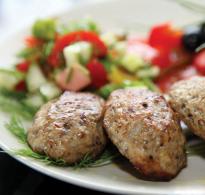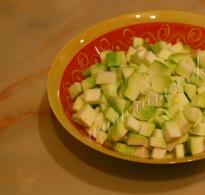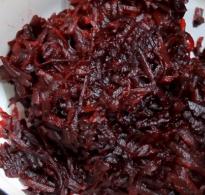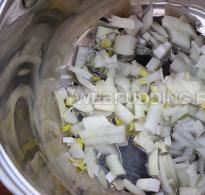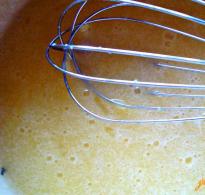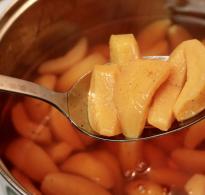The egg floated up with its blunt end up. If eggs float in water
The eggs of all bird species are known to be edible. The most accessible to the buyer are chicken and quail, less often you can find ostrich on sale. It is better not to buy duck, goose and many other eggs - they are highly susceptible to salmonella contamination, so they are not so popular.
This article contains useful information for the consumer who is interested in choosing fresh eggs. The tips presented will help determine not only the quality of chicken eggs, but also other birds. Recommended storage conditions will preserve eggs for as long as possible.
Why are eggs different colors and which ones are better to choose?

Surely everyone has wondered: which is better and healthier, a white or a brown egg? It's very simple. The color of the shell largely depends on the breed of bird. For example, a white hen will lay eggs white egg, and golden – brown. And the quantity nutrients does not depend on color in any way.
White chickens are considered more egg-laying, so they are used more often in poultry farms. Because of this, white eggs are associated with factory production and are considered less natural, although this is not the case. However brown eggs still different from whites. Brown ones have a stronger shell than white ones, which is why they are stored a little better. If this is important, choose brown eggs.
Subject to all production rules, factory eggs must be nutritious and safe. It is clear that you cannot completely trust the manufacturer. You should always check the quality yourself.
You won’t find homemade village eggs in a regular supermarket, so focus on factory-made ones. Each egg must be labeled, clean and free of dirt. Now let’s take a closer look at how to choose the right one point by point.
Appearance: no defects or dirt
To correctly determine the quality of an egg, it is recommended to hold it in your hands. It should be clean, without roughness, and intact, not cracked. A solid matte surface will speak of freshness. If possible, hold it near the sun or a lamp. You should not see any darkening or blood clots.
Size matters: determined by markings

Much depends on age. The older the hen, the larger the egg. Therefore, a smaller egg is considered more useful, because... it was laid by a younger hen. If you have a choice, choose smaller eggs, up to a reasonable limit of course. In addition, small eggs last longer compared to large ones.
By the way, we must take into account the fact that brown eggs visually appear larger than white ones. Advice to study the labeling on which the category should be indicated. Assignment to one category or another depends only on weight. The higher the category, the smaller the egg should be.
For example, marking C-1 means that the egg is table and first category. Canteens (letter C) have a shelf life of 25 days. For dietary (D) – up to 7 days. Categories can be as follows: B (highest - from 75 g), O (selected - 65-74.9 g), 1 category. (55-64.9 g), 2 cat. (45-54.9 g), 3 cat. (35-44.9 g). The figures given apply only to chicken eggs; for other species the figures are different.
The best option is to buy eggs of the first category - medium size. They have a balanced composition and do not contain excess water, which may be present in larger eggs (highest and selected categories).
By smell
In addition to inspecting the egg outside and inside, to fully check the quality of the egg you need to smell it. A quality egg will never have bad smell, and when rotten, there is a smell of hydrogen sulfide (the protein decomposes and a stench appears).
By sound
When shaking good egg will not make any sound. Shake the egg well. If you hear squelching, this will mean that the protein has become watery (a void has formed inside) and the product is no longer fresh.
Fresh egg sinks in water

At home, every buyer can do a simple freshness test. Place the egg in a container of water. Buoyancy will be a sign of staleness. A fresh egg will definitely sink, even if the water is salted.
The less fresh egg, the better its buoyancy. It does not pop up immediately, but after some time. If it floats on the surface, then this is a clear sign of staleness.
The less fresh the egg, the better its buoyancy. It does not pop up immediately, but after some time. If it floats on the surface, then this is a clear sign of staleness.
To make sure it’s fresh for sure, you can use one more method. Take an egg, break it and carefully observe how it spreads. It is useful to study the white and yolk itself. More on this below.
By spreading after breaking

A broken fresh egg has a convex yolk, and if it spreads, then this is a clear sign of staleness.
Quality can be checked by the white and yolk. The white should be light, transparent and thick, without spots. Yolk – bright, with rich color. The pallor of the yolk will indicate that the chicken had poor nutrition or was sick. But still, you should not rely only on these indicators, because... unscrupulous manufacturers can artificially create an attractive color of the white and yolk.
If you come across an egg with two yolks, don't worry. Such a product does not differ in the degree of usefulness or harmfulness.
By date
Always remember to check the manufacturing date and expiration date. It is better to look at the date not on the packaging, but on the egg itself. This grading date is closest to the date the bird laid the egg. Also pay attention to the storage conditions in the place where you buy this product.
Terms and conditions of storage

If all conditions are met, eggs are guaranteed to be stored for 25 days. You can also find diet eggs on sale that have a shelf life of no more than 7 days and are marked with the letter “D.”
The egg storage temperature should be between 1-5 degrees Celsius. At lower temperatures they will deteriorate irrevocably. Well, don’t forget, the higher the temperature, the shorter the shelf life.
The best storage place is the refrigerator. Not best place in the refrigerator (based on temperature) there is a door, although this is where manufacturers provide special cells for eggs. Theoretically, eggs can last up to 90 days in the refrigerator, but it is better not to experiment and risk your health.
Place the eggs with the pointed end down (the blunt end allows it to “breathe”) or, even better, turn it over from time to time. Well, don’t forget to treat the storage area in the refrigerator especially carefully when you wash it.
And one more useful advice, which may be needed if preservation is required for a long period. Grease each egg with vegetable oil and wrap in foil - this will help significantly increase shelf life.
Wash eggs only before use, because... after washing, the natural protective layer is removed, which will affect the shelf life. In principle, this layer can be successfully replaced vegetable oil, unless, of course, you don’t mind spending it for this purpose.
You won’t be able to store the yolk for a long time - a maximum of 2 days. To achieve this period, you need to place it in a container with salted water.
Quail and ostrich eggs are preserved better than chicken ones.
What packaging should I buy eggs in?

Eggs are a very fragile food product and therefore packaging plays an important function during their storage and transportation.
Paper containers are considered the best option. Plastic containers are inferior to paper ones, although they have two serious advantages: you can see the product through the plastic and bacteria do not develop in it as quickly as in paper. In addition, by buying eggs in paper packaging, you help nature, because... paper is an environmentally friendly material.
This is one of the simplest and most visual experiments that can be done at home. We only need a raw egg, a glass and a little salt. For clarity, we took two glasses and two raw eggs.
Let's begin our experience. Pour regular tap water into one of the glasses. Place the egg in the glass. What happened? The egg sank and sank to the bottom of the glass. In the photo below, the curvature of the glass has caused the egg to be comically distorted.

Pour into a second glass warm water. Add 6 tablespoons of salt to this glass. And stir the salt very well so that it is completely dissolved in the water.

Now comes the fun part. Carefully lower the second egg into the glass in which you just dissolved the salt. The egg floats on the surface!

Explanation of experience
The average density of an egg is much higher than the density of tap water. When we dissolve salt in water, its density increases and the egg no longer sinks in it. Thus, a simple conclusion can be drawn: objects sink in liquid if their density is higher than the density of the liquid.
We can observe a similar effect at sea. sea water very salty, it has a high density. It's like she's pushing us out of the water. Staying afloat in such water is much easier than swimming in a fresh body of water, of course, if sea waves do not interfere.
Density and weight
I will try to explain “on the fingers” what density is. Density can be defined as the amount of matter contained in a given space or volume. If the amount of substance (amount of matter) in a given space or volume is greater, then the object is said to be denser and heavier at the same time. But density and weight are not the same thing, they are not interchangeable concepts.
Weight is determined by the force of gravity acting on an object. Unlike density, weight depends on the magnitude of attraction at a particular location. For example, consider regular egg. Its density remains the same no matter where it is located. Even if you place it in space in zero gravity, its density will not change. But an egg in space will lose its weight!
Why does an egg sink or float?
As already said, if you lower an object that is denser than fresh water, then the object sinks. This is what happened when we lowered the egg into fresh tap water - the egg is denser, it repels water particles and makes room for itself, sinking to the bottom. But when we put the egg in salt water, salt water is heavier than fresh water, it has more ability to keep the egg afloat.
Why does salt make water denser?
But why does salt, when dissolved in water, make the water more dense? When salt dissolves in water, it breaks down into ions, which are then attracted to water molecules. Due to this attraction, the amount of matter per unit volume—density—increases. Water now consists not only of hydrogen and oxygen molecules, but also sodium and chlorine (since salt consists of sodium and chlorine). Thus, salt water has more particles as compared to fresh water.
Every housewife knows that an egg lies at the bottom during cooking, so if suddenly raw eggs float in the water, there must be well-founded doubts about the quality of the product.
Unfortunately, it is difficult in a store, especially in supermarkets, where goods are offered in closed container. But at home while cooking, you can and should find out this question.
The following points should raise suspicions:
- unpleasant smell of hydrogen sulfide,
- protein opacity.
To ensure freshness, it is not necessary to break the product.
You need to put it in a pan of water, and if eggs floated into cold water or during cooking, which means they have spoiled.

Why is this happening?
Many people mistakenly believe that the egg is hermetically sealed.
- In fact, there are pores in the shell through which air enters the chick. But along with it can also come microorganisms that cause putrefactive processes, as well as the release of gases. The gases are lighter than water, so they push the egg to the surface.
An old egg, even if it is edible, will float in any case, since air accumulates over time between the shell and the albumen.
- If you threw an egg into water and it immediately sank to the bottom in a horizontal position, then the product is fresh.
- If the blunt end floats up, it means that it is a week old, and irreversible processes have occurred inside, due to which the yolk and white have become more liquid. But you can still eat.
- If the egg has taken a vertical position, it is about two to three weeks old. A completely floated product is more than a month old, and it is not recommended to eat it.

It is worth remembering that salt added during cooking will not reliably determine the freshness of the product, since salt makes the water denser, and a floating egg may not necessarily be spoiled.
But if it remains lying at the bottom, then there are doubts about its usefulness and good taste it can't be.
VIDEO ON THE TOPIC
Not only chicken, but also if they are no longer suitable for food.
To avoid becoming a victim of a low-quality product, you can try to determine the degree of freshness before purchasing it.

- Best before date. It is different for each product class. Yes, for diet eggs it is up to 8 days, for canteens, which are the most common, up to a month, for long-term storage - up to six months.
- Shell. It should be a little rough and without gloss. It is smooth only on a stale product.
- Weight. Take the product in your hand. If it’s light, it means it’s already stale.
- Shake the egg. If something seems to be loose inside and you hear slight sounds, then the product is not fresh.
In order to avoid damage to an already purchased product, you should follow simple rules.
- Do not buy a product with cracks in the shell.
- Store them only in the main compartment of the refrigerator, not in the door, as opening the door causes a temperature change.
- To store eggs, choose a separate container so that the product does not come into contact with other contents of the refrigerator.
- The optimal humidity for maintaining freshness is from 75 to 85%.
- If the shelf life chicken egg- up to three weeks, then quail - up to 40 days at a temperature from 0 to 20 degrees, and at a temperature from 0 to 15 degrees - up to 60 days.
- If the egg was hard-boiled, it can be stored for up to 7 days.
- The longer a product is stored at low temperatures, the less vitamins remain in it.
If you have doubts about the quality of an egg, do not risk your health and throw it away, as food poisoning can be very serious, especially for young children.
There are many ways to check the freshness of a chicken egg, some methods are quite simple, however, not all of them are 100% reliable.
Most quick way- shake the egg. If the contents of the egg are scrambled, this is a sign that the egg is stale and most likely unfit for consumption. In addition, recently laid eggs have a matte surface, while old ones have a shiny, bluish tint. Under ultraviolet light, fresh eggs appear bright red; as they are stored, the red color fades to lavender.
The shell of the egg is not impermeable, and the egg gradually loses water, resulting in its density decreasing. The "blunt" part of the egg contains an air chamber that expands as the egg dries.
According to the requirements of the state standard (GOST R 52121-2003), the air chamber of the egg should be no more than 9 millimeters. The size of the air chamber can be measured using special device(ovoscope). The ovoscope works on the principle of transillumination and allows you to determine not only the size of the air chamber, but also other quality characteristics. However, such a device is often unavailable not only at home, but also in most egg sales points.
You can easily check the density of an egg by placing it in a glass of water or a diluted solution. table salt. Fresh eggs sink, stale eggs float. For example, one source recommends the following method:
Dip the egg in an 8% solution of kitchen salt. If it lies at the bottom, then the age of the egg is within 1-6 days. If the blunt end of the egg rises and the egg is positioned diagonally, forming an angle of 45° with the bottom of the glass, then the egg is about 7-10 days old. If the egg stands almost vertically at the bottom, then it is 11-12 days old. If it floats in solution - 13-17 days. The blunt end comes out of the water - the egg is more than 17 days old (data from the site http://www.optom-torg.at.ua).
The freshness and density of an egg depend on many factors, in particular on the conditions of its storage, therefore such an accurate determination of the age of an egg by its behavior in a salt solution raises serious doubts. It's not surprising that this simple way there is no control in the corresponding state standard. Moreover, the density of the salt solution itself depends not only on its concentration, but also on the temperature, which at home can vary significantly. Therefore, a simpler recipe deserves attention:
Dissolve a tablespoon of salt in 0.5 liters of water, then dip the egg into it. If it sinks to the bottom, the egg is fresh; if it is of average freshness, it will float somewhere in the middle; if it floats, the egg is not suitable for food.
If an egg floats in water (without salt), it is even more unfit for consumption.
To begin, we poured water into a half-liter glass and dropped a recently purchased egg into it. The egg sank to the bottom, where it assumed a vertical position (blunt end up). It became clear that it was suitable for consumption, but such an egg could not be called very fresh.
Then a strong solution of sodium chloride was carefully added along the walls of the glass. The egg came off the bottom, but did not float completely, stopping a few centimeters from the surface. The egg was lighter than the strong sodium chloride solution that had collected at the bottom, but heavier than the water (which was on top). If the egg was carefully lowered to the bottom, it floated up again, and it was visually noticeable that a heavier liquid had accumulated at the bottom of the glass.
Due to diffusion, the concentration of salt in the glass is equalized, so one would expect that over time the egg would float or sink. However, a week has already passed, and the egg continues to float: it so happens that the density of the egg is close to the density of the salt solution, which was formed after equalizing the concentration.
Thus, appearance, density of the egg and the shake test can provide valuable information regarding the freshness of the egg, but a definitive conclusion can only be made by breaking the egg. The presence of a putrid, rotten or musty odor, as well as the appearance of the contents, will clearly warn that consuming such an egg is dangerous to health.
It is difficult to guess whether you bought fresh eggs, because it is impossible to look under the shell without breaking it, and it reliably hides the sight and smell of the contents. And yet there is a way out. It turns out that you can easily and quickly determine the freshness of this valuable product using... plain water.
Unusual product, which hides many secrets. For example, many people think that the shell is impenetrable, but this is not at all true, otherwise how can the chick breathe? The coating has micropores, invisible to the naked eye, and allows air to pass through.  And since there is a hole, there is access for microorganisms. It is because of harmful bacteria that the egg can spoil.
And since there is a hole, there is access for microorganisms. It is because of harmful bacteria that the egg can spoil.
So, let's figure it out: how to determine the degree of suitability of a product without breaking the shell? We are not talking about ultra-modern electronic devices. We only need a glass of water and a “test” testicle.
Which egg doesn't float?
When we need to cook this product soft-boiled or hard-boiled, we take a pan and immerse it in cold liquid required quantity eggs Attentive housewives have noticed more than once that they usually immediately sink to the bottom, and this is the norm. Fresh chicken product always falls to the bottom.
Did you know? Chicken is the most common bird on Earth.
Let's figure out why this happens. The fact is that the activity of microorganisms always contributes to the release of gas, and gas is lighter than water, which is a liquid. And since the product is fresh and there are no harmful bacteria inside it in dangerous quantities, there is no gas in it either.
If, after immersing an egg in a container of water, you see that it is hovering in the middle, between the bottom and the surface, do not be upset and angry with the seller for the stale product.  It is indeed not the first freshness, but it is edible and not at all dangerous.
It is indeed not the first freshness, but it is edible and not at all dangerous.
The fact is that air has already managed to pass through the pores and accumulate between the shell and the thin film (when the shell is broken, it is visible to the naked eye). This phenomenon did not harm the product at all and did not deteriorate its quality.
Which egg floats with its blunt end
Raising the egg to the surface of the water with a blunt end indicates that such a product is already a week old and there is a certain vital activity of microorganisms inside it, which has made the contents less liquid (thickening it), but it is still suitable for consumption.
The main thing is to eat it as quickly as possible.
Did you know? Tiny hummingbird blows away the world's smallest bird eggs- their diameter is about 12 mm.
If the egg has completely floated to the surface, your breakfast is most likely ruined, because enough gases have accumulated in it to push the not-so-light product out of the water.
However, you can do another test: break it into a separate bowl. If there is no characteristic unpleasant odor- this means the product can still be eaten. If the egg has an unpleasant, pungent odor, there will be no doubt - it is finished. 
Floating in salt water
There is an opinion that adding salt to the water before cooking will help maintain the integrity of the shell while it is heated.
Important! The protein-yolk substance is capable of absorbing flavors through the shell.
However, if you decide to check the freshness of the egg directly in the pan, you cannot salt the water. Salt will change chemical composition water, which will increase the density of the liquid. The result will be inaccurate: a fresh egg dipped in salty liquid will not float to the surface.
Video: how to check the freshness of an egg using water
So, you can determine the freshness of eggs without even violating their integrity. This is very important, because when buying them even from the most familiar and trusted seller, you need to remember that no one is immune from mistakes.
A spoiled egg poses serious health problems, so it is better to dip the egg in cold, non-salted water before each meal for a tasty and, most importantly, safe breakfast.

